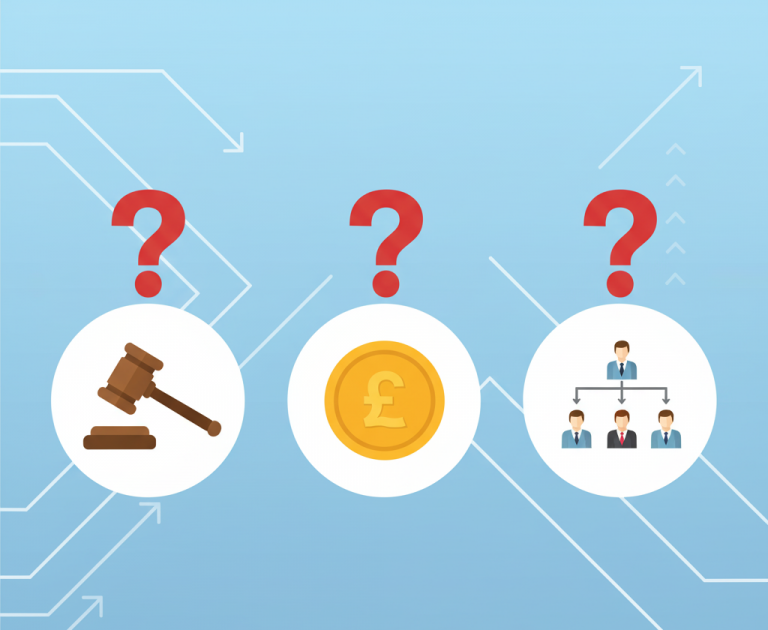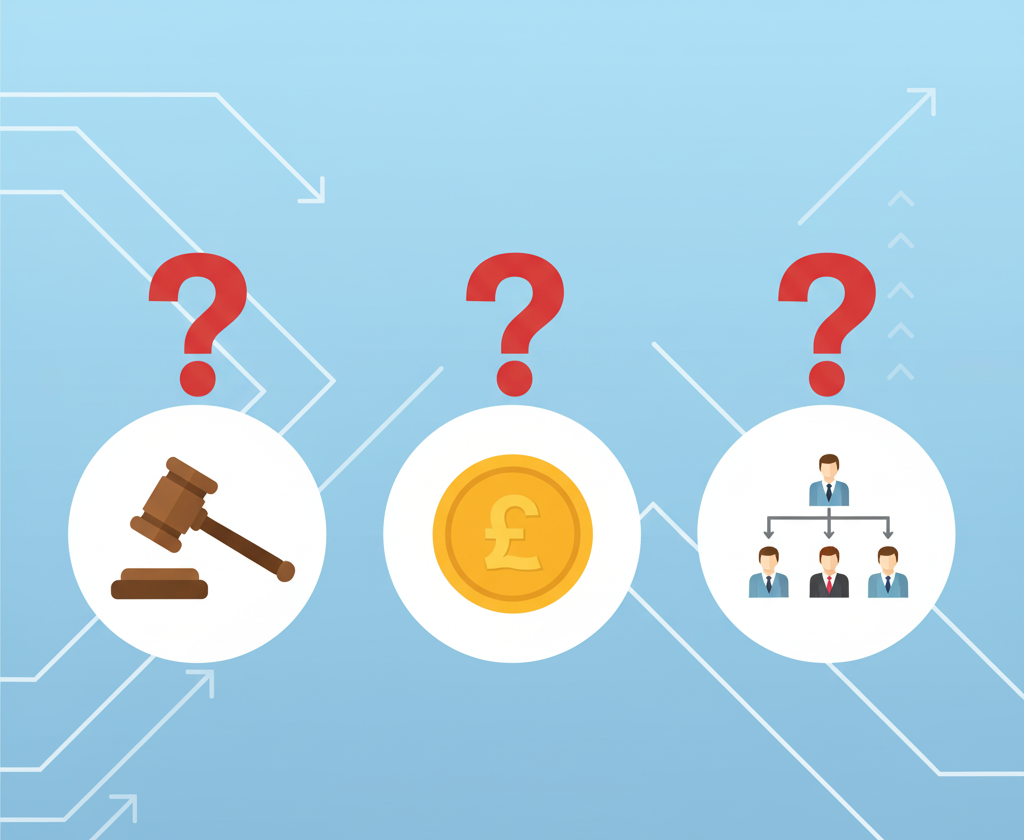If you own a business, farm, or have built up a substantial pension pot, the proposed changes in the UK’s Draft Finance Bill 2025-26 could have a major impact on your wealth and how you pass it on to the next generation.
The House of Lords has just launched an inquiry into these changes, and frankly, they’re some of the most significant shifts we’ve seen in inheritance tax policy for years. Let me break down what’s happening and why you need to pay attention.
What’s Actually Changing?
The House of Lords Finance Bill Sub-Committee is reviewing two major proposed changes that could affect millions of UK taxpayers:
- New caps on Business Property Relief (BPR) and Agricultural Property Relief (APR)
- Bringing unused pension funds into the inheritance tax net
These aren’t just minor tweaks to existing rules – they represent a fundamental shift in how the government views inherited wealth.
The £1 Million Question: Business and Agricultural Property Relief Changes
Here’s How It Works Now vs. What’s Proposed
Currently, if you own qualifying business assets or agricultural property, you can potentially pass them on with up to 100% inheritance tax relief. It’s been a lifeline for family businesses and farms.
The proposed changes would introduce a £1 million cap:
- The first £1 million of your business or farm: Still gets 100% relief
- Everything above £1 million: Only 50% relief
What This Means for Your Business
Let’s say your family business is worth £2 million. Under current rules, it could potentially pass to your children inheritance tax-free. Under the new proposals:
- First £1 million: No inheritance tax
- Second £1 million: 20% inheritance tax (40% standard rate with 50% relief)
- Total tax bill: £200,000
That’s a significant sum that many families simply don’t have lying around, potentially forcing them to sell assets or even the business itself.
The Agricultural Sector Faces Similar Challenges
Farming families are particularly concerned. Many farms are asset-rich but cash-poor. A large dairy farm or arable operation worth several million pounds could suddenly face hundreds of thousands in inheritance tax bills.
This could mean:
- Forced land sales to pay tax bills
- Fragmentation of family farms
- Threats to the viability of multi-generational agricultural businesses
Pension Changes: The End of Tax-Free Inheritance?
A Major Shift Coming in April 2027
Here’s something that might surprise you: currently, most pension funds don’t count toward your estate for inheritance tax purposes. They’ve been one of the most tax-efficient ways to pass wealth between generations.
That’s all set to change from April 2027.
What This Means for Your Retirement Planning
If you’ve been building up your pension partly as a way to leave money to your family, you’ll need to rethink your strategy. Your pension pot will now be included in your estate for inheritance tax calculations.
Example scenario:
- Your estate: £400,000
- Your unused pension: £300,000
- Total for inheritance tax: £700,000
This pushes you well over the £325,000 nil-rate band, creating an inheritance tax liability where none existed before.
Why You Can’t Afford to Wait
The Planning Window is Narrowing
I’ve been speaking with colleagues across the industry, and there’s already a surge in clients seeking advice on inheritance tax planning. The smart money isn’t waiting for the final legislation – they’re acting now while there’s still time to implement strategies.
Real-World Impact: What We’re Seeing
Business owners are already:
- Reviewing their company structures
- Considering timing of succession plans
- Exploring gift strategies
- Reassessing pension drawdown timing
Farmers are:
- Looking at land ownership structures
- Considering diversification options
- Reviewing succession timing
- Exploring conservation agreements
Your Action Plan: What You Should Do Now
Step 1: Get Your Numbers Clear
You need to understand exactly where you stand:
- What’s your business worth?
- How much is in your pension pots?
- What reliefs do you currently qualify for?
- What would your inheritance tax bill look like under the new rules?
Step 2: Explore Your Options
Depending on your situation, there might be several strategies worth considering:
For Business Owners:
- Restructuring business ownership
- Implementing share schemes
- Timing succession transfers
- Creating loan arrangements
For Farmers:
- Land ownership restructuring
- Diversification into qualifying activities
- Conservation easements
- Generational planning strategies
For Pension Holders:
- Reviewing drawdown strategies
- Adjusting beneficiary arrangements
- Considering alternative wealth transfer methods
- Rebalancing retirement income plans
Step 3: Get Professional Help
These changes are complex, and the wrong decision could cost your family significantly. This isn’t the time for DIY tax planning.
The Bottom Line: Act Now, Not Later
The proposed changes in the Finance Bill 2025-26 aren’t just technical adjustments – they’re a fundamental shift in how inherited wealth is taxed in the UK. Whether you own a business, farm, or have substantial pension savings, these changes could significantly impact your family’s financial future.
The key word here is “proposed.” While these changes aren’t law yet, the political momentum suggests they’re likely to proceed in some form. The question isn’t whether you’ll be affected, but how much the impact will be and what you can do about it.
Don’t Let Change Catch You Off Guard
I’ve seen too many families caught unprepared by tax changes over the years. The ones who fare best are those who plan ahead, understand their options, and take action while there’s still time.
The window for planning is open now, but it won’t stay that way forever. If these proposals affect you, the time to act is now, not after the legislation passes.
Need help understanding how these changes might affect your specific situation? The complexities of inheritance tax planning require expert guidance tailored to your individual circumstances. Don’t wait until it’s too late to explore your options.
If you own a business, farm, or have built up a substantial pension pot, the proposed changes in the UK’s Draft Finance Bill 2025-26 could have a major impact on your wealth and how you pass it on to the next generation.
The House of Lords has just launched an inquiry into these changes, and frankly, they’re some of the most significant shifts we’ve seen in inheritance tax policy for years. Let me break down what’s happening and why you need to pay attention.
What’s Actually Changing?
The House of Lords Finance Bill Sub-Committee is reviewing two major proposed changes that could affect millions of UK taxpayers:
- New caps on Business Property Relief (BPR) and Agricultural Property Relief (APR)
- Bringing unused pension funds into the inheritance tax net
These aren’t just minor tweaks to existing rules – they represent a fundamental shift in how the government views inherited wealth.
The £1 Million Question: Business and Agricultural Property Relief Changes
Here’s How It Works Now vs. What’s Proposed
Currently, if you own qualifying business assets or agricultural property, you can potentially pass them on with up to 100% inheritance tax relief. It’s been a lifeline for family businesses and farms.
The proposed changes would introduce a £1 million cap:
- The first £1 million of your business or farm: Still gets 100% relief
- Everything above £1 million: Only 50% relief
What This Means for Your Business
Let’s say your family business is worth £2 million. Under current rules, it could potentially pass to your children inheritance tax-free. Under the new proposals:
- First £1 million: No inheritance tax
- Second £1 million: 20% inheritance tax (40% standard rate with 50% relief)
- Total tax bill: £200,000
That’s a significant sum that many families simply don’t have lying around, potentially forcing them to sell assets or even the business itself.
The Agricultural Sector Faces Similar Challenges
Farming families are particularly concerned. Many farms are asset-rich but cash-poor. A large dairy farm or arable operation worth several million pounds could suddenly face hundreds of thousands in inheritance tax bills.
This could mean:
- Forced land sales to pay tax bills
- Fragmentation of family farms
- Threats to the viability of multi-generational agricultural businesses
Pension Changes: The End of Tax-Free Inheritance?
A Major Shift Coming in April 2027
Here’s something that might surprise you: currently, most pension funds don’t count toward your estate for inheritance tax purposes. They’ve been one of the most tax-efficient ways to pass wealth between generations.
That’s all set to change from April 2027.
What This Means for Your Retirement Planning
If you’ve been building up your pension partly as a way to leave money to your family, you’ll need to rethink your strategy. Your pension pot will now be included in your estate for inheritance tax calculations.
Example scenario:
- Your estate: £400,000
- Your unused pension: £300,000
- Total for inheritance tax: £700,000
This pushes you well over the £325,000 nil-rate band, creating an inheritance tax liability where none existed before.
Why You Can’t Afford to Wait
The Planning Window is Narrowing
We’ve been speaking with colleagues across the industry, and there’s already a surge in clients seeking advice on inheritance tax planning. The smart money isn’t waiting for the final legislation – they’re acting now while there’s still time to implement strategies.
Real-World Impact: What We’re Seeing
Business owners are already:
- Reviewing their company structures
- Considering timing of succession plans
- Exploring gift strategies
- Reassessing pension drawdown timing
Farmers are:
- Looking at land ownership structures
- Considering diversification options
- Reviewing succession timing
- Exploring conservation agreements
Your Action Plan: What You Should Do Now
Step 1: Get Your Numbers Clear
You need to understand exactly where you stand:
- What’s your business worth?
- How much is in your pension pots?
- What reliefs do you currently qualify for?
- What would your inheritance tax bill look like under the new rules?
Step 2: Explore Your Options
Depending on your situation, there might be several strategies worth considering:
For Business Owners:
- Restructuring business ownership
- Implementing share schemes
- Timing succession transfers
- Creating loan arrangements
For Farmers:
- Land ownership restructuring
- Diversification into qualifying activities
- Conservation easements
- Generational planning strategies
For Pension Holders:
- Reviewing drawdown strategies
- Adjusting beneficiary arrangements
- Considering alternative wealth transfer methods
- Rebalancing retirement income plans
Step 3: Get Professional Help
These changes are complex, and the wrong decision could cost your family significantly. This isn’t the time for DIY tax planning.
The Bottom Line: Act Now, Not Later
The proposed changes in the Finance Bill 2025-26 aren’t just technical adjustments – they’re a fundamental shift in how inherited wealth is taxed in the UK. Whether you own a business, farm, or have substantial pension savings, these changes could significantly impact your family’s financial future.
The key word here is “proposed.” While these changes aren’t law yet, the political momentum suggests they’re likely to proceed in some form. The question isn’t whether you’ll be affected, but how much the impact will be and what you can do about it.
Don’t Let Change Catch You Off Guard
We’ve seen too many families caught unprepared by tax changes over the years. The ones who fare best are those who plan ahead, understand their options, and take action while there’s still time.
The window for planning is open now, but it won’t stay that way forever. If these proposals affect you, the time to act is now, not after the legislation passes.
Need help understanding how these changes might affect your specific situation? The complexities of inheritance tax planning require expert guidance tailored to your individual circumstances. Don’t wait until it’s too late to explore your options.Get in touch with us today!


















